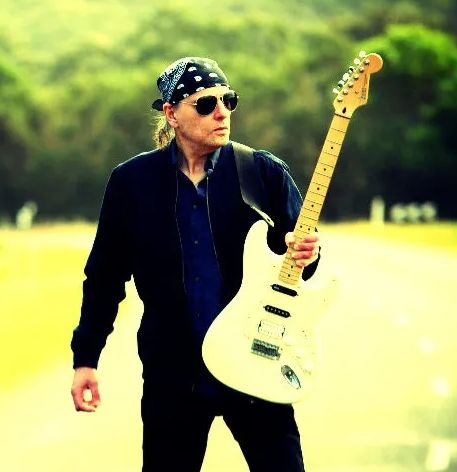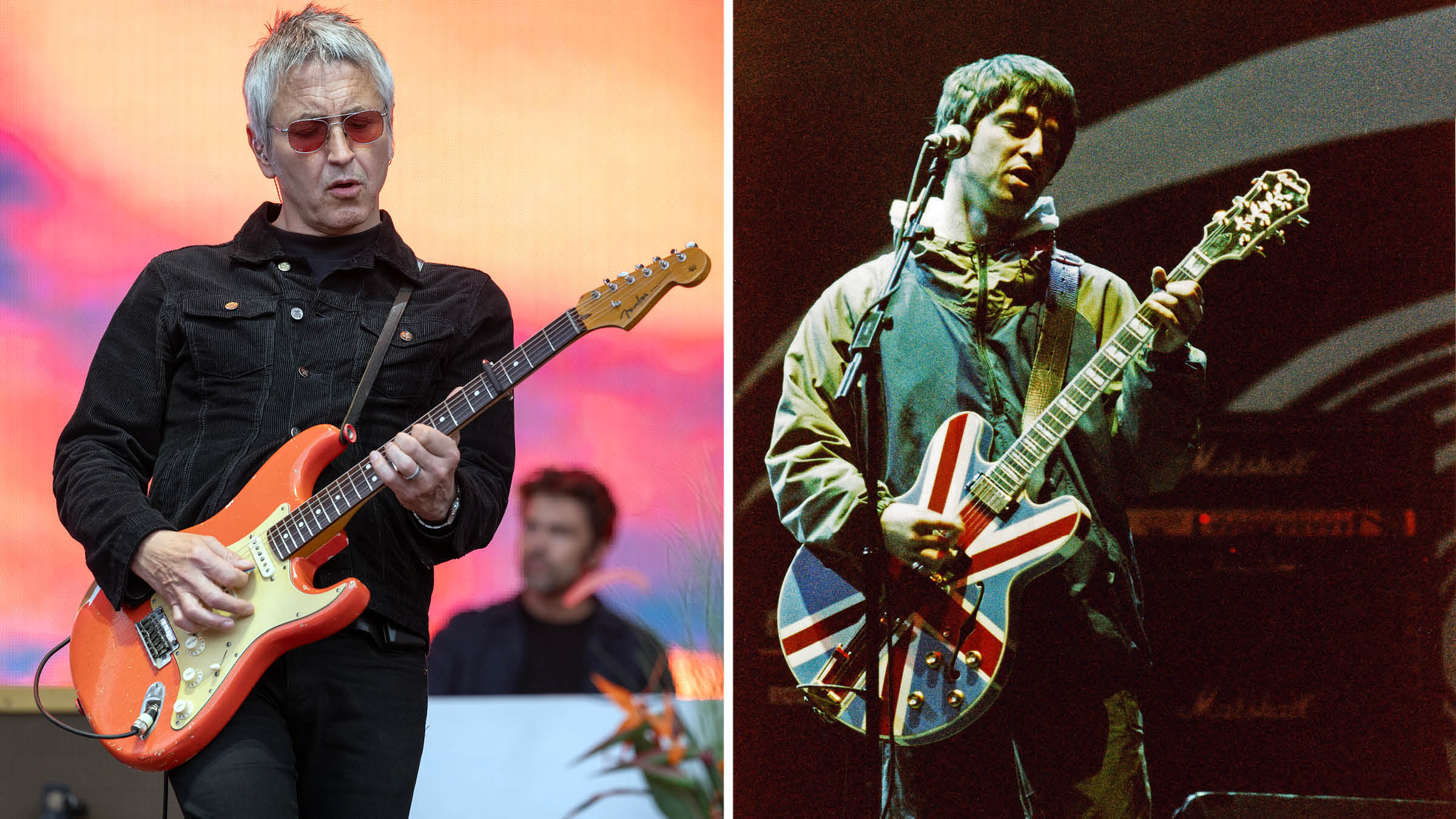“The interviewer asked Joe Satriani, ‘Why Andy Fairweather Low?’ And that’s exactly the question I would’ve asked, too”: He's played with Eric Clapton, George Harrison and David Gilmour, but now, this rhythm guitar hero is ready to take center stage
‘The Invisible Bluesman’ on why he probably won’t write any more songs, the ignored art of rhythm guitar, why he always thinks, ‘Why me?’ – and trying to persuade an amp expert to build a deliberately inefficient model
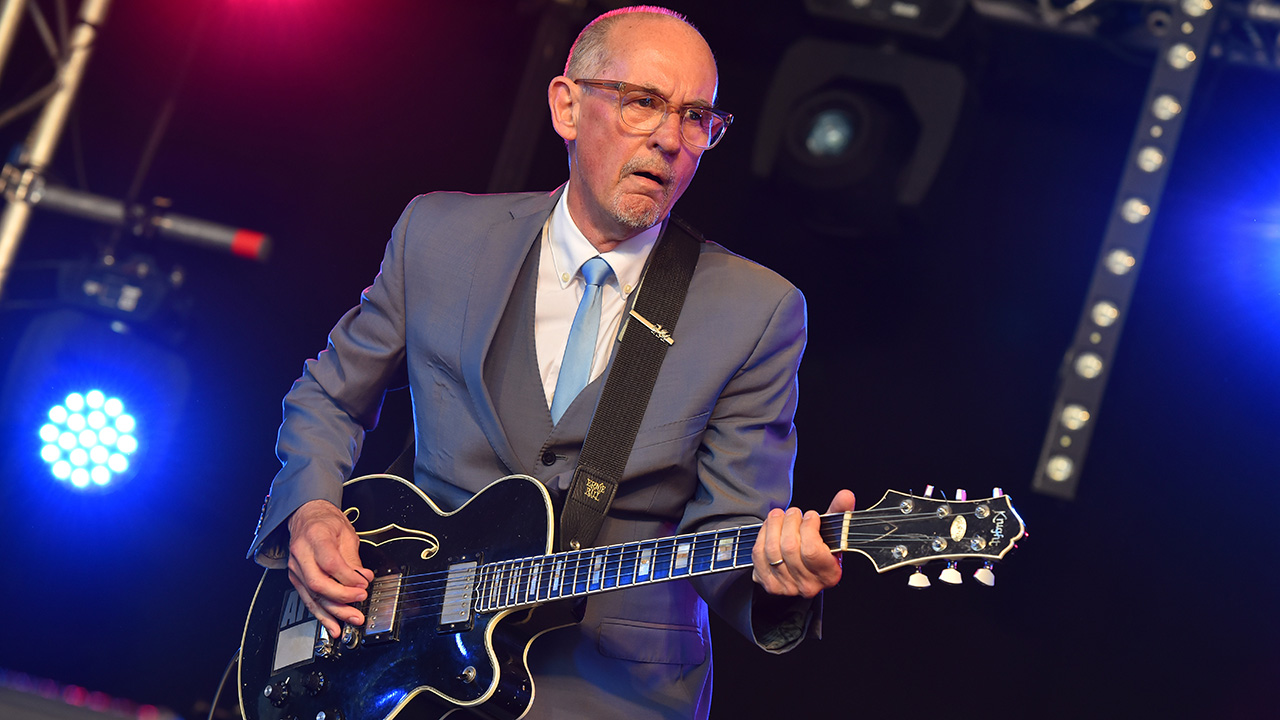
After bursting onto the British music scene in 1967 as frontman for Welsh pop-rockers Amen Corner, guitarist Andy Fairweather Low later built up an extraordinary list of credits as guitarist, singer, and collaborator with Eric Clapton, Roger Waters, George Harrison, Joe Satriani, David Gilmour, Bob Dylan, and many others.
Until now, Fairweather Low has largely gone unrecognized in the blues world. But his new album, The Invisible Bluesman, showcases his unique voice and guitar mastery in a collection of material recorded since he left Clapton’s band.
The title The Invisible Bluesman is apt – you’ve toiled away for decades in the shadows. Why was it time to take front-and-center position?
“It was Malcolm Mills’s idea, the guy who owns [the record label] The Last Music Company. He said, ‘I've seen your show and I think we need to put this blues thing out there. There’s an audience out there and they’re not getting it.’ He came up with the title and I went, ‘that's exactly how I feel!’
“I’ve played with Gatemouth Brown, BB King, Otis Rush, Jimmie Vaughan… the list goes on – but it seems to mean absolutely nothing. When I did a big show at New Year’s last year, it was advertised as ‘Andy Fairweather Low, lead singer with Amen Corner’. Now, I’m not disowning it, but I’m 76 years old. Give me a break!”
And it’s your final album, too?
“My previous album, Flang Dang, did absolutely nothing. And I loved that album; I played everything on it except the drums. I think this is probably my last self-penned album. I don't see the point anymore, unless something breaks.
All the latest guitar news, interviews, lessons, reviews, deals and more, direct to your inbox!
“But a blues album, a soul album, or a gospel album? You never know. I’m just going to play live and enjoy it. I’ve already got a tour next year happening for two months playing to about 300 to 400 people nightly, and it’s already 90 percent sold out. I’ll see how life on the road feels in 2025.”
You came to work with George Harrison through a mutual love of Ry Cooder’s guitar playing.
“We’d met a couple of times at different Ry Cooder gigs and just said ‘hello,’ nothing more. Then I got a call from Roger Forrester, who was Eric’s manager, and he says, ‘George wants you do the tour of Japan, and play all the intricate slide parts; he doesn't want to do them.’
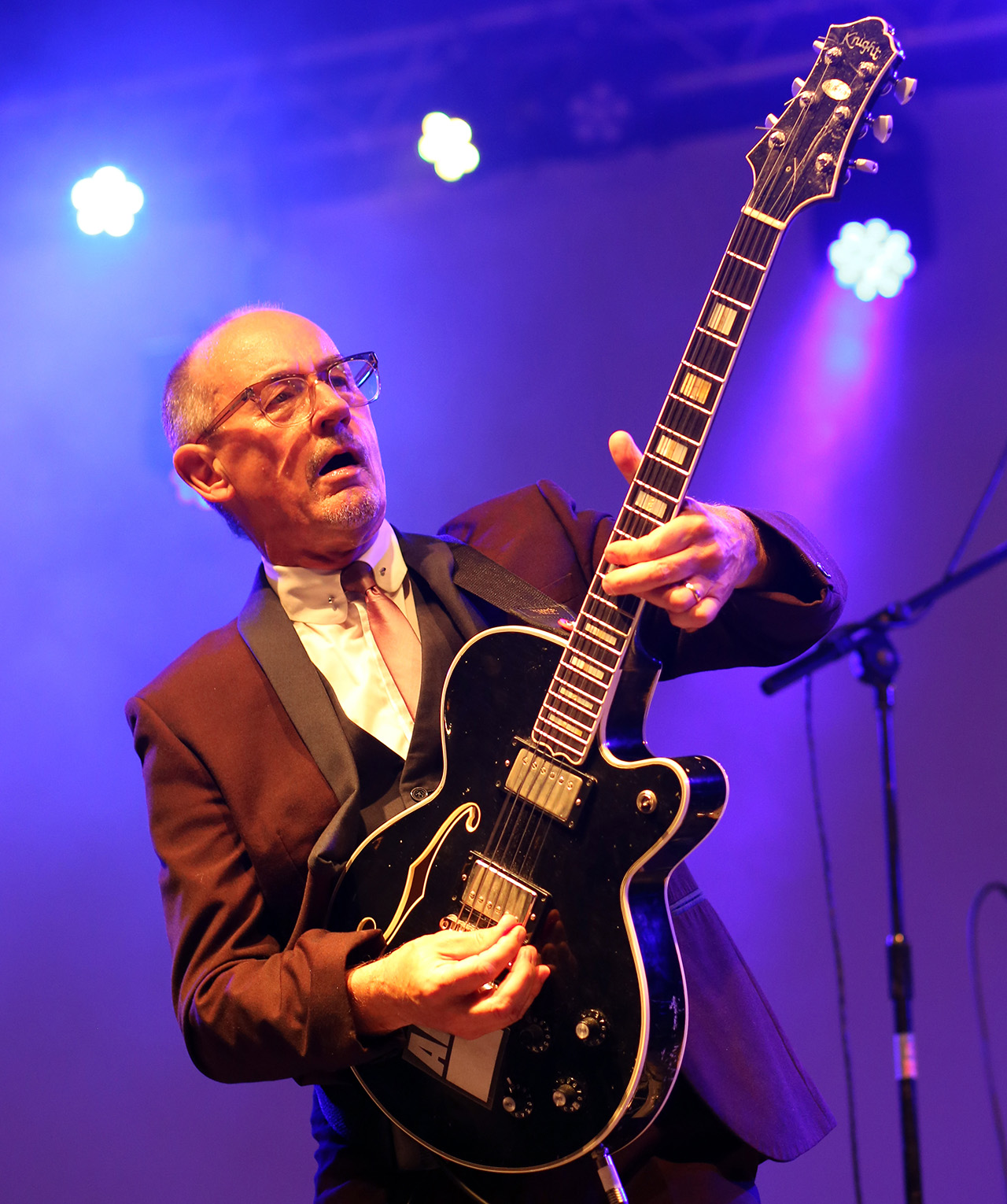
“I don’t play slide – but I knew this was a life-changing moment. I thought, ‘I’m either going to turn up at the rehearsal and they’ll realize I’m an absolute no-go. Or I can phone George and own up. So, I asked Roger to get me George’s number, and I rang him.
“I told George, ‘I know we met at a Ry Cooder concert, and I’m a big fan of Ry, too, but I’m never going to play slide. I'm having enough trouble with my fingers without putting a metal or glass bar in the way. I’ll stick to what I do.’
“But George said, ‘Everybody seems to like you, so why don’t you just come up?’ And I did, and we got on really well. After we talked for a while and laughed a lot, he said, ‘Let's play Give Me Love.’
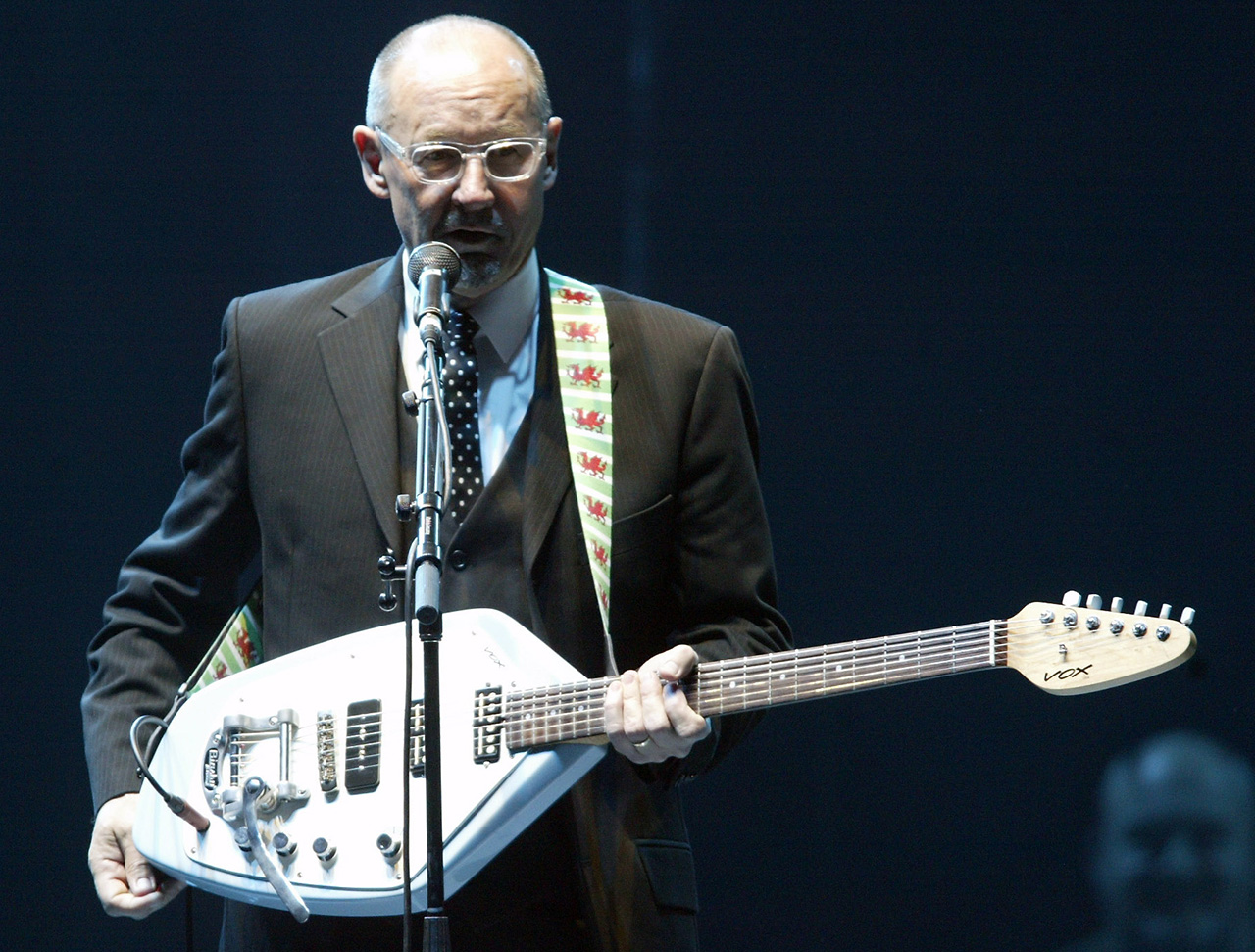
“Well, I knew that inside out because Living in the Material World is one of my all-time favorite albums. I can sing all the harmonies on that song, and sing the slide solo – but I couldn’t play it. Eventually I had to learn to play it, because he wouldn’t.”
And he didn’t change his mind?
“No. I said, ‘George, I’m the rhythm player. You’re the slide player.’ But he wouldn't have it. It was the same with Eric – I had to play the front of Tears in Heaven, and other hits of his. Riffs and licks which everybody know, and they’ll go, ‘That didn't sound like it.’ So there was always a fabulous pressure on all those gigs.
I never felt good enough – but all Eric Clapton wants you to do is to be the best you can be
“When I was with Eric we did a tour of America doing stadiums as a double header with Elton John. I was in the car with him and he put on Jimmy Rogers’ Chicago Bound – which is to me, the book on how to play the blues. Everybody is playing at the top of their game and it was all captured in one go.
“Eric’s taste in music is unbelievable; all kinds of music. He’s got a fabulous knowledge. And as a guitar player, I never felt good enough. But all he wants you to do is to be the best you can be. He’s fabulous at that.”
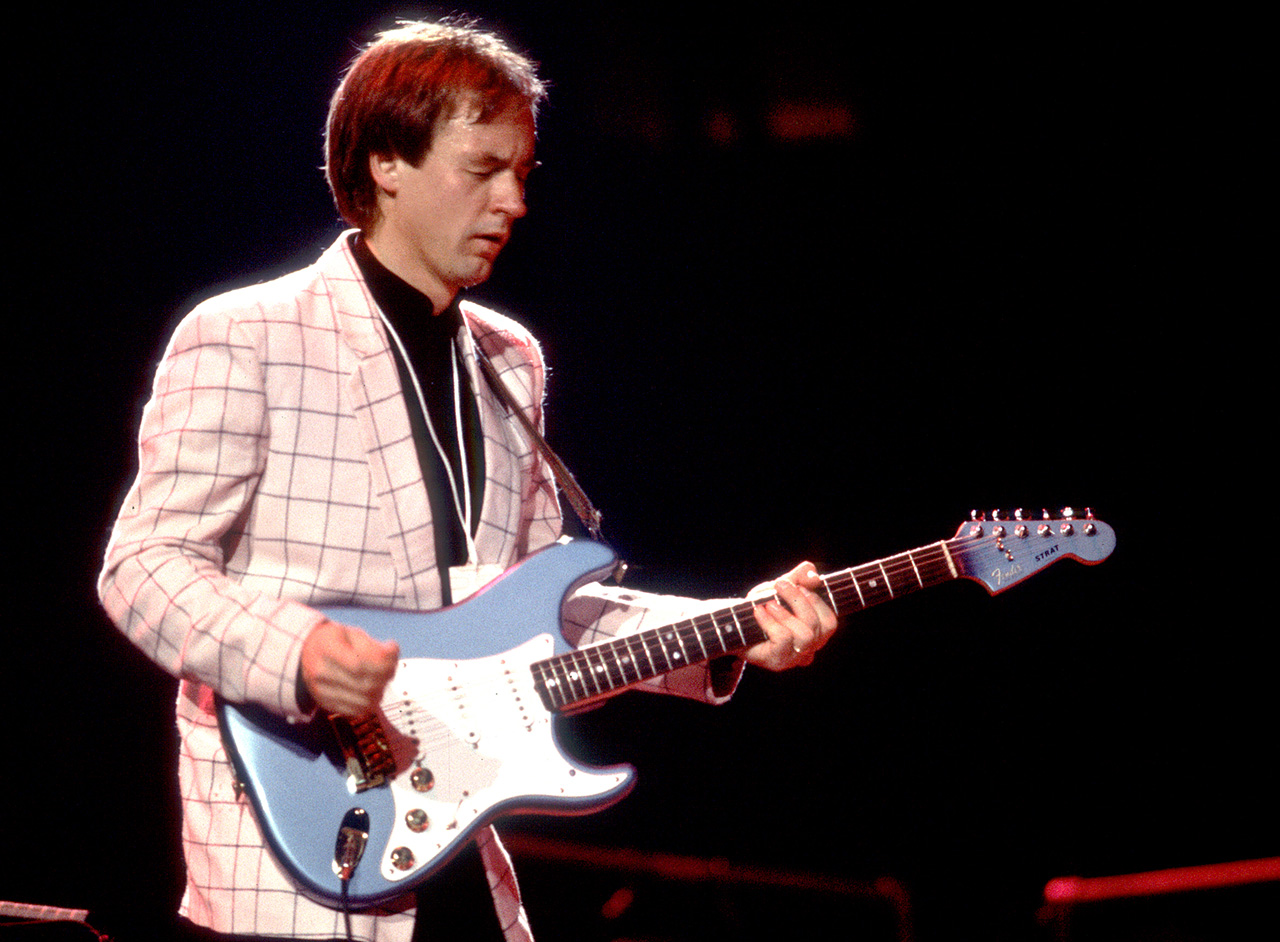
What’s your current guitar and amp setup?
“When it comes to guitars, it’s mainly a Knight Arena which was made by Gordon and Robert Wells. I use a Cornell amp, made by Denis Cornell from Southend. I wanted him to make me an ‘inefficient amplifier,’ which is against all of the ethos of an amplifier maker.
“But after a lot of trials he made me an amp with a volume knob, a tone knob, and a bit of vibrato. And that is it. No graphic equalizers, no presence, no nothing. And the amp just growls.”
During a period in the late 80s, you were mostly playing Strats fitted with Lace Sensor pickups, then you moved on to humbuckers.
“On one of the tours with Eric, I had these Strats with the Lace Sensors, but I eventually ripped them all out – I couldn’t get on with them. I first put in two humbuckers and eventually ended up with one. I like humbuckers because it helps keep everything simple.
“I’ll plug the guitar in, turn it up maybe to four or five, and if it growls then I’m there tone wise. And though you can do all the fine bits with nice pretty notes and all, it’s got to have that growl.”
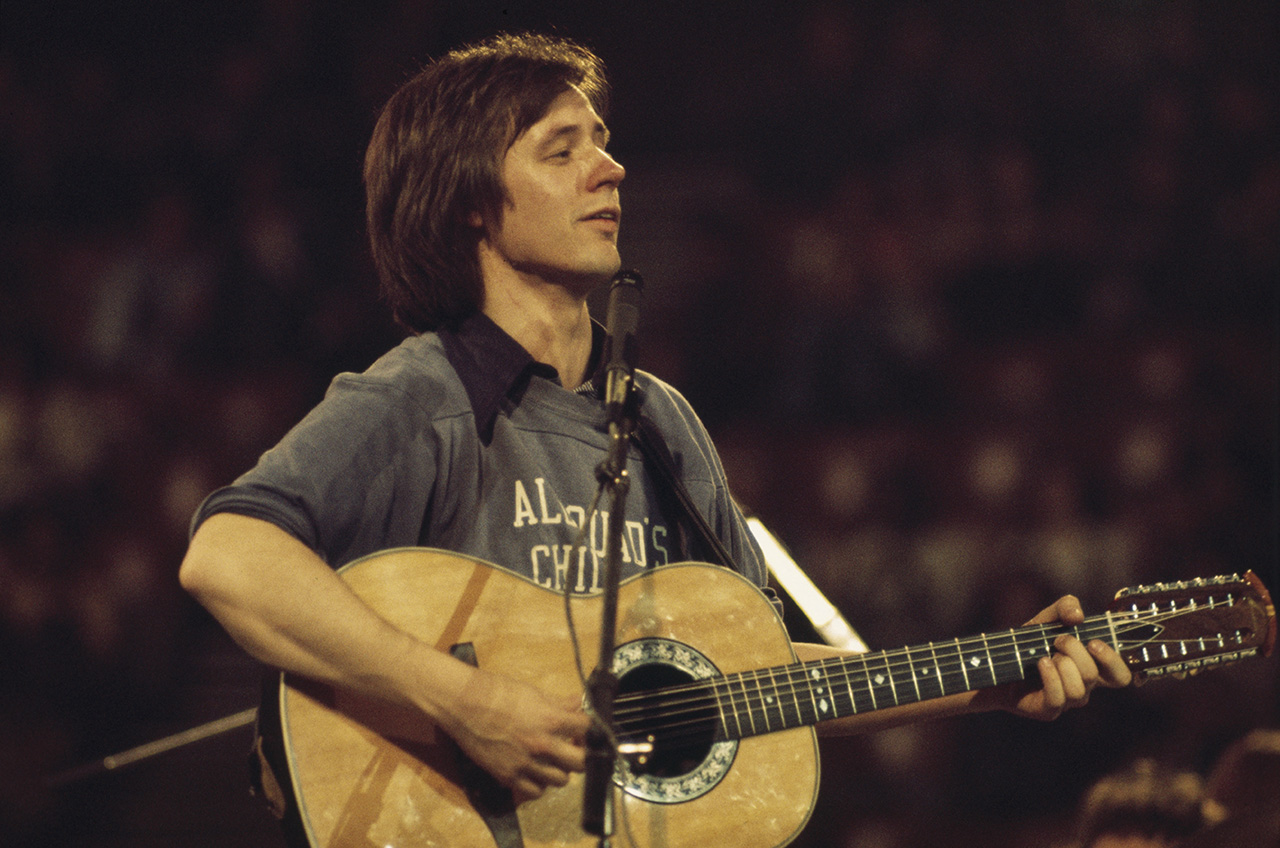
Playing rhythm guitar is so underrated. Do you think people misunderstand its importance?
“I was lucky that I never had the facility to be a lead guitar player, but I loved being a rhythm player. I was lucky in that I wasn’t good enough to be a lead guitar player – and I didn’t want to be.
They asked Joe Satriani, ‘Why Andy Fairweather Low?’ I would have asked, too
“I realized that when I saw Eric Clapton in 1966 at the Flamingo Club with John Mayall; I knew I couldn’t do that. I can do the lick, and I can play the front of My Sweet Lord and Tears in Heaven – but I can’t take the solo.”
You played rhythm on Joe Satriani’s 1995 self-titled album. What do you recall of that session?
“I remember Joe’s first interview after we’d done the album, where the interviewer started with, ‘Why Andy Fairweather Low?’ And that’s exactly the question I would’ve asked, too! I know what I do and I know what Joe does.
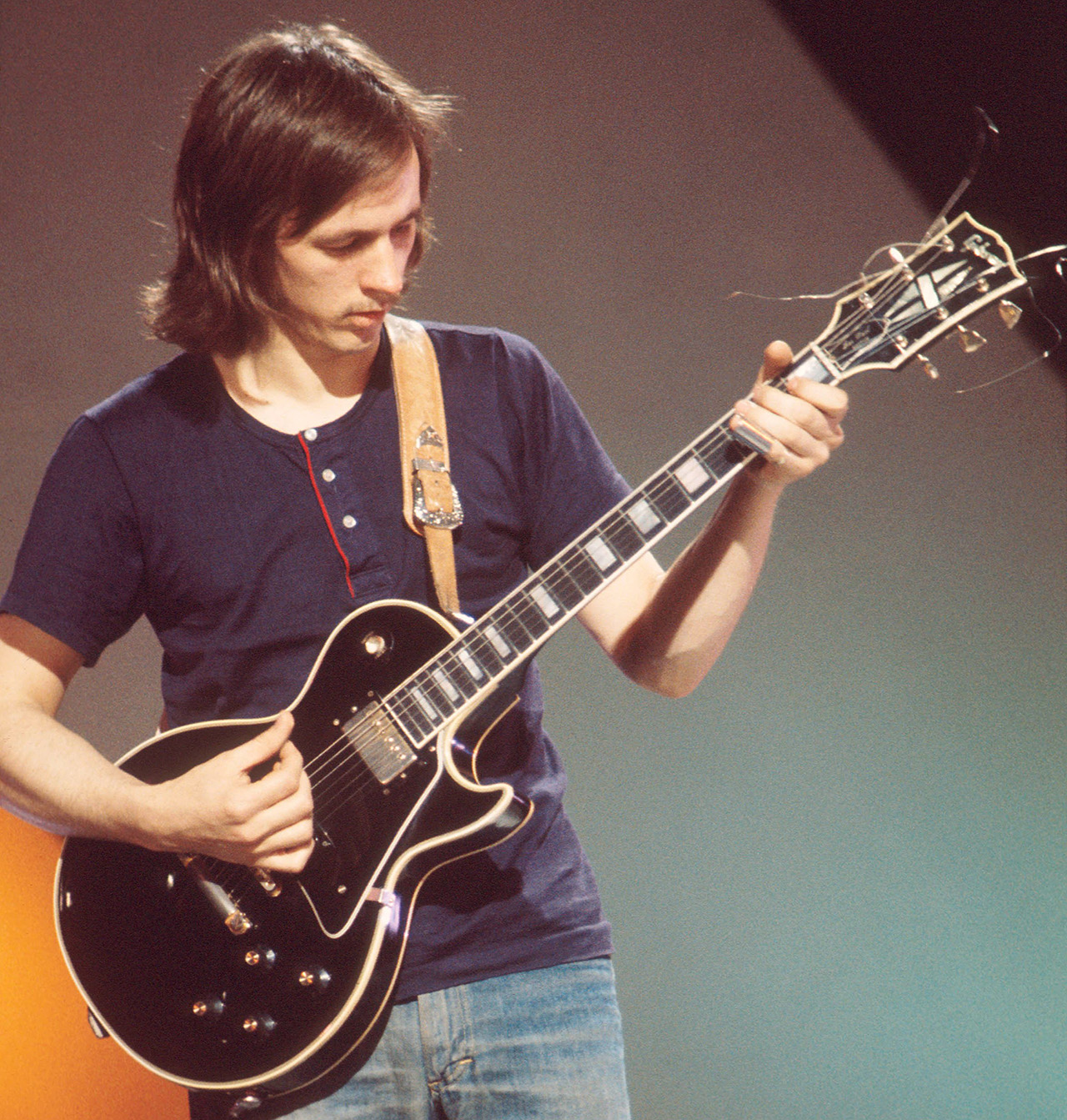
“I’m three feet away from Joe doing these songs, but I can’t think as fast as he can play. I did bring lots of different guitar tones, rhythm tones, whatever – I had a fabulous Supro with a lap steel pickup, and Fender made me an Esquire, so I could add things.
“And Joe, God, he was fabulous. We spent three weeks, and made a live album. And I think to myself, ‘Why me? The singer with Amen Corner is playing with Joe Satriani!’ He was so kind and tolerant, and I’m forever grateful to him, too.”
- The Invisible Bluesman is set for release on February 7 via The Last Music Company.
Joe Matera is an Australian guitarist and music journalist who has spent the past two decades interviewing a who's who of the rock and metal world and written for Guitar World, Total Guitar, Rolling Stone, Goldmine, Sound On Sound, Classic Rock, Metal Hammer and many others. He is also a recording and performing musician and solo artist who has toured Europe on a regular basis and released several well-received albums including instrumental guitar rock outings through various European labels. Roxy Music's Phil Manzanera has called him, "... a great guitarist who knows what an electric guitar should sound like and plays a fluid pleasing style of rock." He's the author of Backstage Pass: The Grit and the Glamour.
